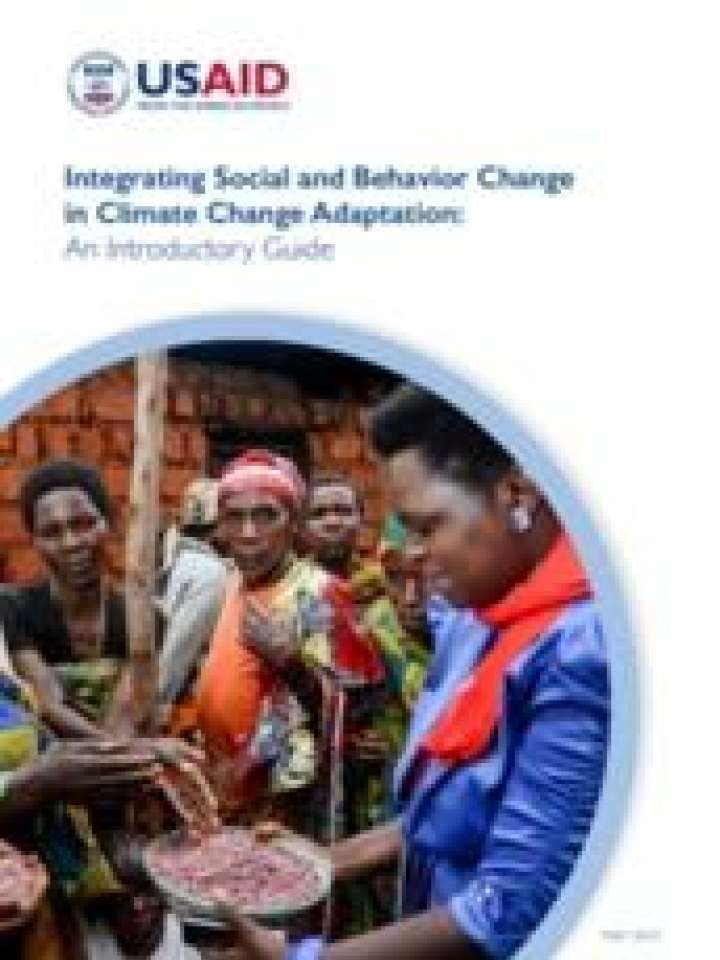Integrating social and behavior change in climate change adaptation: An introductory guide
Most climate change adaptation and risk reduction measures require that humans modify existing behaviors or adopt new ones for individuals and households to maintain their livelihoods and for governments to meet economic development objectives. Human behavior is complex — it often takes a combination of information, incentives, and behavior change approaches to cause an individual to test, adopt, and sustain a new behavior or modify an existing one. Social and Behavior Change (SBC), which incorporates knowledge from across disciplines to change behaviors in response to specific challenges, is a critical yet underutilized discipline that can help individuals and communities adapt to near- and long-term changes in climate.
This guide from the USAID-funded Adaptation Thought Leadership and Assessments (ATLAS) project is intended to serve as an introductory resource for USAID, implementing partners, and development practitioners interested in integrating SBC into climate change adaptation and resilience programming. The guide is divided into three interrelated modules that introduce key SBC concepts and provide direction for developing SBC initiatives. The modules are structured as follows:
- Understanding behavioral determinants of climate change adaptation
- Defining SBC objectives to encourage climate change adaptation
- Planning and implementing SBC for climate change adaptation
This report also shares key resources for expanding knowledge of SBC and considerations for SBC use in project design and implementation stage monitoring and evaluation.
Explore further
